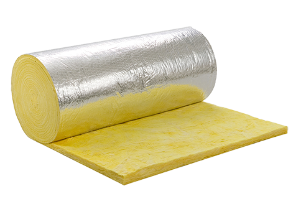The cost of living is going up for many households, including those on lower incomes. For people who are on low income, receive state benefits and who live in fuel poverty, this can often mean that more than a large proportion of their money each year is going on utilities.
In recent years, the government has launched the Energy Company Obligation (ECO) scheme which is aimed at those who are struggling with their fuel bills, connecting them to obligated installers who are focused on reducing fuel poverty and boosting low-carbon solutions. If your property doesn’t currently have a boiler or radiators and if you meet the eligibility criteria, you might be able to get a grant for first time central heating.
Here we take a closer look at what grants are available and how you can replace your existing, inefficient heating with an A-rated central heating system, including:
- What central heating grants are available?
- How do I apply for a grant?
- What are the benefits of applying for a grant?
- Who can apply for grants?
- Where are central heating grants available?
- What heating do I need to qualify?
- When should I apply for a grant?
1. What central heating grants are available?
There are two central heating grants available in the UK under the Energy Company Obligation (ECO) scheme.
1. First time central heating grants (FTCH)
The first time central heating grant is for those who have never had a boiler or radiators before and the grants are available to home owners and to renters.
2. Boiler grants
Boiler grants will be more suitable for you if you are a home owner and where your property has already had central heating previously. The boiler grant will pay towards, or for, a replacement boiler at your home.
Both of these heating grants are available and designed to help people with low incomes upgrade their inefficient heating systems and lower their energy bills.
First time central heating grants are available to homeowners, private tenants and housing association tenants, whereas boiler grants are only available to homeowners.
The ECO scheme is designed to encourage utility companies and installers to provide eco-friendly solutions for low-income homeowners, for example, by installing a new boiler, radiators and updating or installing insulation.
First time central heating grants pay towards or for the installation of a new heating system including radiators. Whereas boiler grants cover the replacement or upgrade of old boilers but not for the radiators.
2. How do I apply for a grant?
Applying for a grant is really easy and usually takes a couple of minutes. After you apply for a grant the installer will check eligibility and ask you questions about whether you are a homeowner or a private tenant and they’ll also ask you about the benefits you get. The installation of your new central heating system can only be carried out by organisations that are registered to install under the scheme. The installer will carry out a free assessment and let you know what grants you will be able to get and what work needs to be carried out to improve the energy efficiency of your home. In addition to seeing if you qualify for heating grants the installer will also check if you are eligible for loft insulation, roof insulation, underfloor insulation, cavity wall insulation and solid wall insulation, such as external wall insulation or internal wall insulation.
3. What are the benefits of applying for a grant?
The grant covers all (or part) of the installation of a new, more efficient system and does not have to be paid back.
The grant is paid for by energy suppliers and while you may have to find some portion of the installation cost, depending on the system and your personal circumstances, you should receive heavily subsidised government funding to improve your home’s heating system.
Once your new heating is installed, you should see significant savings on your energy bills. In addition to the financial savings on your gas and electricity bills, your home will be much more efficient with lower carbon emissions.
4. Who can apply for grants?
To apply for a first time central heating grant, you need to meet the eligibility criteria and you need to apply for the grant through an eco installer that installs central heating systems under the energy company obligation scheme.
There are 3 main routes to eligibility:
1. You (or a member of your household) receives a qualifying benefit
To be eligible under the qualifying benefits route, at least one household member needs to either be currently claiming a qualifying benefit or, have claimed that benefit within the last 18 months.
If anyone in your household claims one of the following benefits, you will be eligible for the scheme regardless of your household income:
- Armed Forces Independence Payment
- Attendance Allowance
- Carers Allowance
- Child Tax Credits
- Constant Attendance Allowance
- Disability Living Allowance
- Income-Based JSA
- Income-Related ESA
- Income Support
- Industrial Injuries Disablement Benefit
- Pension Guarantee Credit
- Personal Independence Payment
- Severe Disablement Allowance
- Tax credits
- Universal Credit
- War Pensions Mobility Supplement
- Working Tax Credit
2. You (or a member of your household) receives Child Benefit
You can also qualify for a grant if you claim Child Benefit, but if Child Benefit is the only benefit you receive, you’ll also need to meet the household income rules here.
3. Your household meets your local authority rules for eligibility
If you don’t claim benefits but your annual household income is less than £30K and you have high energy bills and an EPC rating of D, E, F or G, you might qualify for funding through your local authority flexible energy rules. You’ll need to apply through an installer that is registered with your local authority and it can take time for the local authority to process the application.
Every local authority has to publish their rules in a statement of intent and there is a full list of the published schemes at here.
We have registered with a number of local authorities throughout the UK and can install measures regardless of whether you claim benefits through the local authority flexible energy or LA Flex scheme.
5. Where are grants available?
Grants are available throughout England, Scotland and Wales. If you claim state benefits, the grants are available in all locations. If you are applying through your local authority flexible energy rules you will need to make sure you apply for a grant through an installer that is registered with your local authority. We are registered with multiple local authorities and if for any reason we aren’t we can often refer you to an installer that is registered for your local authority scheme (sometimes the local authority flexible energy route to eligibility is referred to as LA Flex).
6. What heating do I need to qualify?
Providing you have never had central heating at your property and you don’t have radiators you should qualify for a central heating grant.
Central heating grants are available If your home is currently heated by one of the following heating systems:
electric room heaters
electric storage heaters
fan heaters
fossil fuel fire
fossil fuel room heaters
lpg room heaters
lpg room heating
mains gas room heaters
oil room heaters
no heating at all
Upgrading to mains gas central heating could result in significant savings on your gas or electricity bill.
If you aren’t sure what the main source of heating is at your home, you can look up your Energy Performance Certificate (EPC) on the government gov.uk website.
7. When should I apply for a grant?
We recommend applying as soon as you can! The scheme is administered by Ofgem and the eco funding rules can change at any time, so the sooner you apply the quicker your application will be processed before there are any scheme changes.
Once you fill out the short application form, the installer will carry out an initial virtual assessment of the property and they might call to ask you questions about the existing heating and insulation. The next step is for your home to be assessed and most obligated installers should carry out a no obligation survey of your property. The grant is applied for by the installer and they will then tell you how much you can claim and whether you need to cover any of the cost. Once the grant has been agreed upon, the installer will carry out the work and present you with any maintenance and warranty documents when finished. All installers that carry out work under the ECO scheme need to be registered with TrustMark so you can be sure that work will be carried out by a trusted heating installer with the reassurance that, if anything goes wrong, the work is backed by this leading Government-backed organisation.
We can help with all aspects of applying for a central heating grant, assessing your property and installing the most cost-efficient and eco-friendly solution.
See if you qualify by filling in our short online application form and our professional, friendly team will arrange a time to assess your property.











